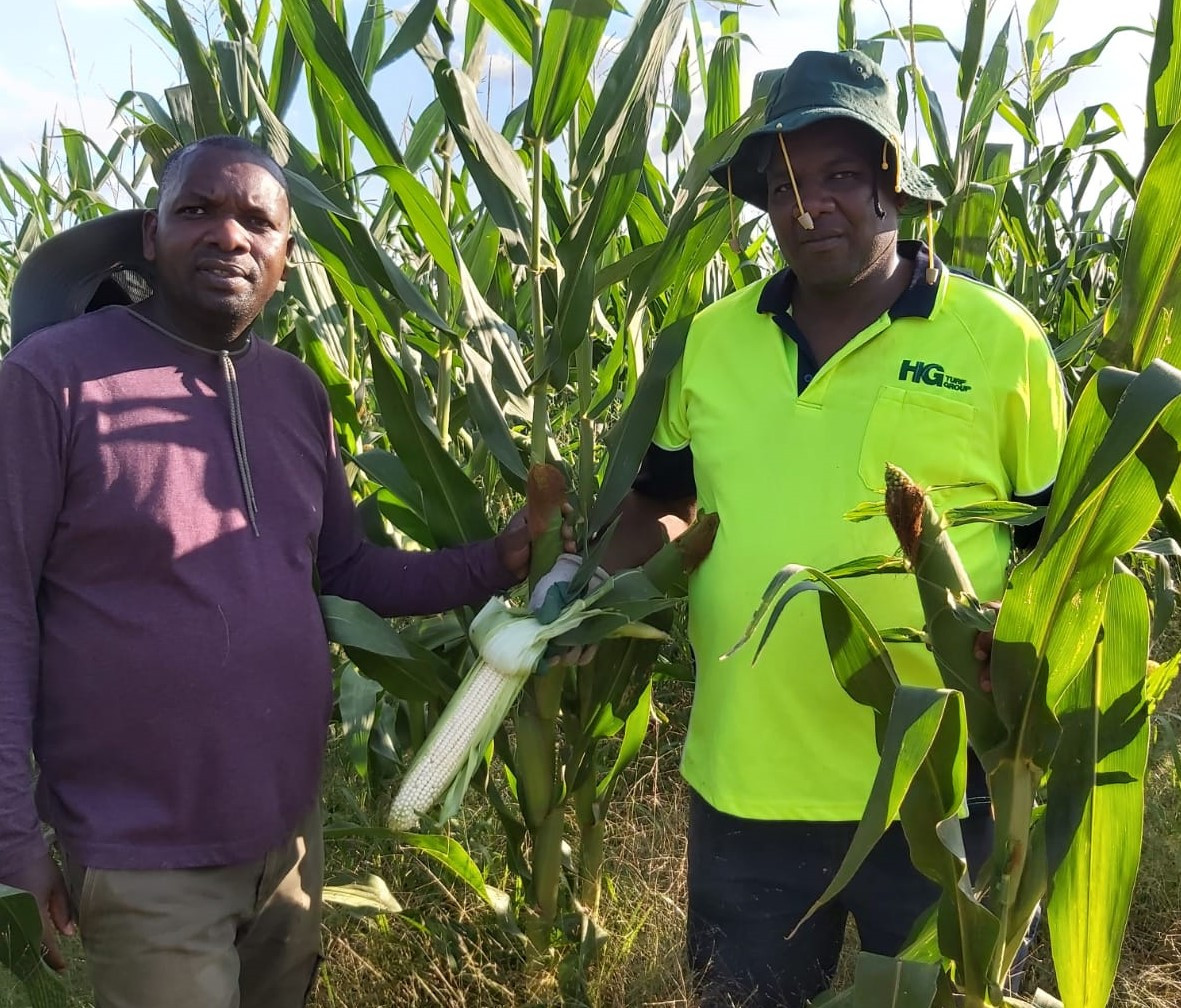Most of the maize crop on the farm has two cobs, while a few others three pointing to a good harvest for farmer Paul Irungu and his friend Handson Ndahanga, a Zimbabwean. Visiting the farm in Shepparton city in Australia, it reminds one of those large-scale maize farms in the Rift Valley, Kenya’s breadbasket.
Having migrated to Australia years ago, Irungu decided to continue with the maize growing culture that he was used to back home in Nyeri, Kenya.
Mkulima Young recently met him and his agribusiness partner on the farm where they were harvesting green maize for weekend deliveries in Melbourne.
“It’s about identifying a business opportunity,” he tells Mkulima Young. "Kenyans and other people from Africa here in Australia miss boiled maize (mutungo), githeri or white flour for ugali, all which are delicacies back home. We, therefore, give them the African experience,” adds Irungu, who was born and brought up in Othaya, Nyeri.
Australia is one of the countries in the world with the strictest bio-security rules and border controls, thus, many travellers avoid carrying food staff.
As many other Kenyans living in the country, Irungu went to Australia as a student. After his masters, he got a job in Melbourne, but being an entrepreneur, he did not settle in the comfort of employment.
Rather, he extended his experience and skills as a farmer to Shepparton, where he met the passionate Australian-Zimbabwean Ndahanga, who needed some psyche to take his passion to the next level.
“Our target market is the African population in Australia who love ugali, githeri and boiled maize,” says Irungu, who holds a post graduate qualification in social work, and works in Victoria.
It is through the course of his work that he met Ndahanga, who was growing some white maize in his backyard.
“I got interested having identified the opportunity of growing white maize which was not common in Australia,” he confides to Mkulima Young.
Ndahanga, who had stayed in Australia longer, introduced Irungu to his wider network of the locals where they leased a piece of land in late 2018 and planted green maize.
In Victoria, maize is planted from November to February. They sold their maize at farm gate and they could not meet the demand.
Last year, Irungu and his friend increased the acreage under the crop to five after leasing more land. They are currently harvesting and the orders have increased, Ndahanga tells Mkulima Young.
“There is a big African population in Australia and it is increasing. These people love green maize, which we are supplying. Locally, yellow maize is the most dominant.”
The two only grow the maize for passion and income, but also part of their proceeds goes to benefit Umoja Children’s Home, an orphanage in Diani, Ukunda, Mombasa County.
“Our plan is to increase the farm size and start milling the maize into flour, a rare commodity in Australia. What is available currently comes from South Africa,” says Irungu.
He notes that it is always good to network and if possible, one should have a team mate in business.
“Always use online marketing. That’s where I usually sell my maize to the African community" he says
Mkulima Young connects farmers in Africa to market (Kenya, Uganda, Rwanda, Tanzania, Zimbabwe, Malawi, South Africa, South Sudant and others). Register here and be a member.
To contact them, Click here
You may be interested in reading this Living in the US, Keeping Beef Cattle in Kenya: A Family Story
Being a member enables you to sell and/or accessing contacts for buyers seeking products for FREE. Also soon you will get regional market trends and prices projection for various agricultural commodities.

